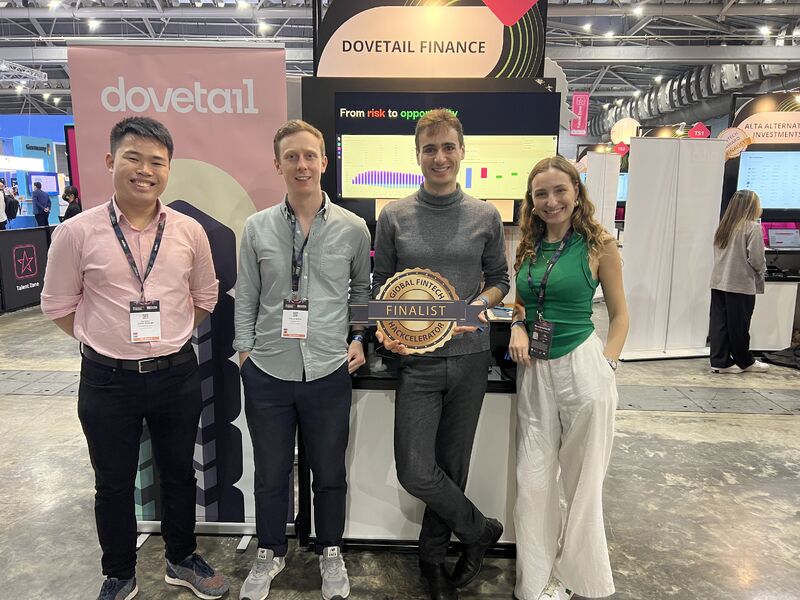Greetings, Agents of Impact!
The Call No. 9: Beyond Trade-offs. How are you managing for impact, risks and returns? Join the conversation with guests in our special-edition podcast series produced in collaboration with Omidyar Network, including Prudential Financial’s Ommeed Sathe, Elevar Equity’s Sandeep Farias, Blue Haven Initiative’s Liesel Pritzker Simmons and Omidyar Network’s Robynn Steffen, Thursday, May 30th, at 10:00 am PT / 1:00 pm ET / 6:00 pm London. RSVP now.
Podcast Series: Beyond Tradeoffs
Lok Capital: Blending commercial capital and smart subsidies for transformative impact. Today’s pipeline of attractive impact investments is built on yesterday’s unproven markets, unprepared enterprises and unappreciated customers. From microfinance to affordable housing to off-grid renewable energy, segments once considered “concessionary” have developed into robust and mature opportunities for commercial investors seeking risk-adjusted market-rate returns. Such market development doesn’t happen by itself, or all in the same way. In Episode 4 of ImpactAlpha’s Beyond Trade-offs series of podcasts, produced in collaboration with Omidyar Network, Vishal Mehta of Lok Capital recalls how the Delhi-based impact investor blended venture capital and grant funding to build markets for financial services, health care and education for low-income Indians.
Welcome to more and more shades of gray. “I call them public goods because if it is just left to the market by itself, it doesn’t work,” Mehta says in the interview with ImpactAlpha’s David Bank. “The market looking for market-rate returns won’t allocate enough capital on these spaces for them to grow by themselves.” So do impact investments require trade-offs between financial returns and social impact? It depends, suggests Lok’s experience, first in microfinance and later in the health and education sectors. When such markets focus exclusively on the underserved, they may require catalytic capital able to accept higher risks, lower returns or longer repayment horizons. “It’s not simple binary outcomes that you can expect,” Mehta concludes. “You have to split the risk return and impact in many thousands of ways.”
Read on, and listen in, to, “Lok Capital: Blending commercial capital and smart subsidies for transformative impact,” by Jessica Pothering on ImpactAlpha.
- Catch up. Take a spin through the full “Beyond Trade-offs” podcast series.
- Don’t miss an episode. Subscribe to ImpactAlpha’s podcasts on iTunes, Spotify, SoundCloud or Stitcher.
Dealflow: Follow the Money
CarePay raises €40 million to manage African healthcare payments. Health insurance schemes in Africa struggle to reach low-income households. Some are offered by private providers and are unaffordable to poor families. Others are under-resourced public programs. People who need care often have no option but to pay out of pocket. Amsterdam- and Nairobi-based CarePay is making healthcare more affordable and accessible to Africans with a “health wallet,” called M-TIBA, that links healthcare payers, providers and users to enable mobile payments. CarePay has enrolled 4.5 million users and 1,200 healthcare providers since 2016. Its €40 million ($44.8 million) funding round is backed by Investment Funds for Health in Africa, ELMA Philanthropies and the non-profit PharmAccess, which partnered with Safaricom to help CarePay launch M-TIBA. Read on.
Indian agtech venture DeHaat follows equity round with venture debt. Gurgaon-based DeHaat runs an online marketplace to connect India’s smallholder farmers with products and equipment for their farms, as well as services to improve the productivity and efficiency of their businesses. DeHaat has raised 200 million rupees ($2.8 million) in debt from Mumbai-based venture debt firm Trifecta Capital to launch credit and insurance for farmers, YourStory reports. The debt round follows DeHaat’s $4 million equity round in March that was backed by impact investor Omnivore and agtech investor AgFunder. Here’s more.
Signals: Ahead of the Curve
What impact multiple of money will TPG Growth generate with global health fund? Before it became an object lesson in private equity scandal, the $1 billion Abraaj Growth Markets Health Fund was an emblem of Sustainable Development Goal opportunity. Now that TPG Growth has finally completed its acquisition of the fund, the question can again be posed, as we did in a podcast last year, “Will ambitious global health strategy survive the Abraaj scandal?”
- Scandalous. The story of the fund, now called the Evercare Health Fund, wraps together not one, but two private equity scandals. TPG Growth’s courtship of the fund’s limited partners, most prominently the Bill & Melinda Gates Foundation, began under former TPG Growth CEO Bill McGlashan, who was fired (or resigned, he says) after his federal indictment in the Varsity Blues college-admission scandal.
- New leadership. The deal was completed under new CEO Jim Coulter, the TPG veteran who came in to lead TPG Growth and its $2 billion Rise Fund dedicated to impact investing. Evercare CEO Khawar Mann resigned after the deal closed; he had remained at the fund, headquartered in Dubai, throughout Abraaj’s meltdown. Chief Operating Officer Andrew Currie will take over day-to-day leadership.
- New home, same rules. The new Evercare Health Fund officially will be part of TPG Growth, which generally does not attempt to “underwrite” for impact, as Rise does. But TPG Growth is expected to apply Rise’s “impact multiple of money” methodology to measure the health fund’s impact.
- Charitable test. The fund’s transfer to TPG will test the legal limits of a form of foundation capital called “program-related investments” at a time when major private-equity players are raising big funds. Under the U.S. tax code, the primary purpose of the Gates Foundation’s $100 million investment must be charitable. Profits, even large ones, are permissible, but only as a secondary purpose. TPG Growth has been unabashedly returns-driven. Does the new health fund qualify as a program-related investment?
- Keep reading, “What impact multiple of money will TPG Growth generate with global health fund?,” by David Bank on ImpactAlpha.
IRIS+ tool provides guidance to reset expectations for ‘impact performance.’ The catalog of generally-accepted impact metrics has been revamped to provide guidance to investors about how to measure and manage impact strategies for financial and gender inclusion, affordable housing, clean energy, health and education, and other areas. The new tool from the Global Impact Investing Network, dubbed IRIS+, will spit back metrics proven to move the dial on particular issues. More investors using common metrics means a greater ability to compare performance within and across portfolios. In a tweet, Tideline’s Ben Thornley called IRIS+ “perhaps the most important public good in impact investing.”
- Accountability. “No longer will it be OK for a manager to check a box” on impact, says Nuveen’s Amy O’Brien. The TIAA-owned investment manager has nearly $1 trillion in assets under management. “Measuring and reporting and results are increasingly important to all and important for industry credibility.”
- New baseline. Internal expectations for impact performance are losing their relevance. Investors want a “go-to way of understanding the baseline expectations for any given investment theme or strategy,” says the GIIN’s Kelly McCarthy. “This has been missing up until now.”
- Keep reading, “IRIS+ tool provides guidance to reset expectations for ‘impact performance,’”by Dennis Price on ImpactAlpha.
Agents of Impact: Follow the Talent
Green infrastructure firm Greenprint Partners seeks a director of finance and operations and an outreach coordinator in Chicago… OpenInvest is hiring a senior engineer and other roles in San Francisco… MIT’s Climate CoLab is looking for solutions to restore degraded landscapes in Least Developed Countries… Porsche is looking for ideas for sustainable mobility… Techstars Impact’s impact report shows its 44 investments have created more than 500 jobs and impacted 3.7 million people since 2018.
— May 16, 2019.











